
Liam Maloney
Liam Maloney is an Associate Lecturer in Music and Sound Recording in the Music Research Centre at the University of York (UK). His research explores the
intersection of dance music history, race, and sexuality as lenses to explain the socio-musicological components of house music and LGBTQ history. His other interests concern the politics of sampling, the history of music listening in everyday life, and DJ record collections.
Less ![]()

Liam Temple
Capuchin Fellow in the History of Catholicism, Durham University
I am the Capuchin Fellow in the History of Catholicism at the Centre for Catholic Studies. Before this role I had taught at Durham, Northumbria and Sunderland as an Associate Lecturer and had also developed my skills in community engagement and digital design in roles outside of academia.
I am a Fellow of the Royal Historical Society and an Associate Fellow of the Higher Education Academy. I also currently serve on the executive committee of the Catholic Record Society. Between 2019 and 2023 I served on the committee for The History of Women Religious of Britain and Ireland (H-WRBI).
I am interested broadly in the history of religion, and in my current role I research the largely unexplored history of the Capuchin Franciscans, focusing especially on their presence in Britain from the start of the seventeenth century to the present day. This includes their presence as missionaries in the seventeenth and eighteenth centuries, as well as their history as a fully-fledged province from the 1870s onwards. This has evolved into wider interests in the history of Franciscanism, the history of the Catholic religious orders, and the history of the Catholic Reformation. I am currently working on two book length projects on the early modern Capuchins and the history of the modern Capuchin province in Britain respectively.
Much of my current work has been undertaken in partnership with the Capuchin Franciscans of Great Britain. As a result, I am also interested in the ways in which religious groups and secular historians can work together on projects, and the community engagement and impact potential that can result from such partnerships.
My PhD research explored mysticism and mystical experience in both Catholic and Protestant groups in early modern England. It has focused on examples of how mysticism encouraged conversation and spiritual collaboration across confessional boundaries in the period. This research culminated in my first monograph which was published with Boydell and Brewer in 2019. Reviewers have described the work as ‘a ground-breaking study’ (Journal of Ecclesiastical History), as ‘impressive for … its mastery of historical scholarship’ (Seventeenth-Century News), and as ‘well-written and lucidly argued’ (British Catholic History).
I have recently co-edited volume 2 of The Oxford History of British and Irish Catholicism with Professor John Morrill. I have also published articles in Church History, Reformation and Renaissance Review, British Catholic History, and Women’s Writing
I have forthcoming entries on mysticism in Portuguese for the Dicionário Global de Espiritualidade e Mística, and a forthcoming chapter on Capuchins for a collection entitled Storia dell’Ordine dei Frati Minori Cappuccini (1528-2028) to be published in Italian and English. I have also recently worked with Cardinal Raniero Cantalamessa, Preacher to the Papal Household, on the English edition of his papal sermons, to be published in 2024 as Faith, Hope, and Charity.
Less ![]()

Liam Cole Young
Associate Professor of Communication and Media Studies, Carleton University
Liam Cole Young is a media theorist who studies how technical histories of data, information, and infrastructure intersect with cultural histories of music, film, sports, and administration.
He researches and teaches across a range of topics and periods—from early modern double-entry bookkeeping and state bureaucracies to 20th century pop music and box office charts; from logistical media of ports, shipping containers, and barcodes to the history and rise of sports gambling; from Y2K and the first dotcom crash to the cod fisheries and fur trade of the 17th and 18th centuries; from financialization and blockchain bro culture to common salt and human hands as media of culture. In each case, I am interested primarily in questions of epistemology (how we know about these things) and infrastructure (how they are built into and operate in the world).
His first book, List Cultures: Knowledge and Poetics from Mesopotamia to BuzzFeed (Amsterdam University Press, 2017; Open Access) explored such themes by tracing the list as a cultural technique of administration and imagination. His current book project is on the history of salt and positions sodium chloride as a medium of culture and civilization. He is also developing a long-term project on sports gambling, datafication, and financialization.
Less ![]()
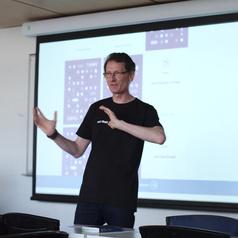
Liam E Semler
Professor of Early Modern Literature, University of Sydney
Liam E. Semler is Professor of Early Modern Literature in the Discipline of English and Writing at the University of Sydney. He teaches sixteenth- and seventeenth-century English Literature. His research publications address Renaissance literature and the visual arts, women's writing in the seventeenth century, and Shakespeare Studies and Shakespeare Education. He leads the Better Strangers project which hosts the Shakespeare Reloaded website (https://shakespearereloaded.edu.au/), and he is co-Series Editor of Cambridge Elements in Shakespeare and Pedagogy (https://www.cambridge.org/core/publications/elements/shakespeare-and-pedagogy).
Less ![]()
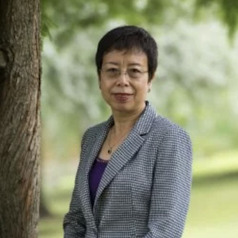
Lian Liu
Reader, School of Chemistry and Chemical Engineering, University of Surrey
Dr. Lian Liu joined the University of Surrey in May 2016 at the Department of Chemical and Process Engineering. Dr. Liu obtained her PhD from the University of Queensland in Australia in 1991 and worked in Carrier Transicold in Singapore for three years after her PhD. She then moved back to the University of Queensland and spent most of her academic career in the same University before moving to the University of Surrey.
Dr. Liu's research expertise is in particle technology and formulations for health applications. Her expertise in particle technology ranging from comminution (particle breakage process) to granulation process (particle size enlargement process) as well as bulk powder flow and compaction and crystallisation. Her expertise on formulations includes novel topical formulations for anti-ageing and wounds healing. Dr. Liu also has a keen interest in advanced materials including fire retardant composite materials. She has worked with a wide range of industries such as minerals, agricultural and pharmaceutical and biotech companies.
Less ![]()
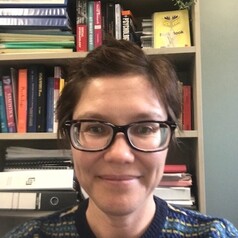
Liana Leach
Associate Professor in Work-Family-Health Research, Australian National University
A/Prof Liana Leach’s research identifies the critical role social contexts play in determining mental health in Australia - with a focus on the mental health challenges in workplaces and parenting contexts. Liana's research has a focus on analysing large, population-level datasets to explore patterns of mental health (and illness) across different socio-economic contexts. She has strong expertise in the field of social epidemiology – teaching courses on the Social and Cultural Determinants of Health and Menta Health Epidemiology.
Less ![]()

Liana Maree
Senior Lecturer, University of the Western Cape
Dr Liana Maree (PhD) is a Senior Lecturer in the Department of Medical Bioscience at the University of the Western Cape (UWC, South Africa). After obtaining a BSc Agric (Animal Physiology, Zoology, Nature Conservation) and MSc Agric (Animal Science), she pursued her PhD in Reproductive Physiology, focusing on the variations in structural and functional aspects of sperm mitochondria. Currently her research focus is comparative sperm biology, with emphasis on: sperm morphometry and sperm motility; relationship between sperm structure and sperm selection; applications of computer-aided sperm analysis in fertility studies; and cryopreservation of sperm of human and various animal species.
Less ![]()
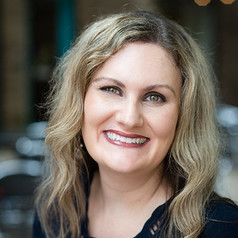
Liana Christin Landivar
Faculty Affiliate, University of Maryland
Liana Christin Landivar is a faculty affiliate at the Maryland Population Research Center and senior researcher at the U.S. Department of Labor. Her research focuses on occupations and women’s employment, and she is the author of Mothers at Work: Who Opts Out? Her work on women’s employment has been covered widely in the media and published in government reports and social science journals.
Less ![]()

Liane Ong
Lead Research Scientist at the Institute for Health Metrics and Evaluation, University of Washington
Liane Ong is a lead research scientist at the University of Washington's Institute for Health Metrics and Evaluation (IHME) where she leads the Brain, Back Pain and Other MSKs, Injuries, Renal, Respiratory, Diabetes, Drugs, and Sensory team.
Less ![]()
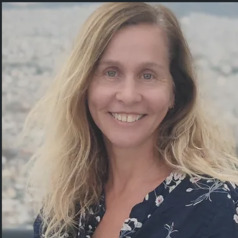
Liat Steir-Livny
Associate Professor of Holocaust, Film & Cultural Studies, Sapir Academic College
Liat Steir-Livny is an Associate Professor at Sapir Academic College and the Open University of Israel. She teaches in the Department of Culture at Sapir Academic College, the Cultural Studies MA program, and the Department of Literature, Language, and the Arts at the Open University of Israel. Her research focuses on Holocaust commemoration in Israel from the 1940s until the present. It combines Holocaust Studies, Memory Studies, Cultural Studies, Trauma Studies, and Film studies. She is the author of many articles and six books.
Less ![]()
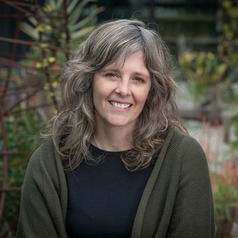
Libby Rumpff
Senior Research Fellow, The University of Melbourne
Libby Rumpff is a Senior Research Fellow in the School of Ecosystem and Forest Sciences and a Principal Investigator in the Quantitative and Applied Ecology group (QAECO) at The University of Melbourne. She is a plant ecologist and environmental decision analyst.
Less ![]()

Libby Sander
Lecturer, Bond University
Libby Sander, Bachelor of Arts (Japanese), Bachelor of Business, Master HRM, Fellow AIM, is the founder and director of the Future of Work Project, founder of Rethink, and past Chair of Goldspaces an urban renewal and cultural development platform.
Libby is a Lecturer at Bond University, published author and works with clients such as Microsoft Europe, Lend Lease and the Gold Coast 2018 Commonwealth Games Corporation. She has won awards from the Academy of Management in the US and presented her research at the world's leading academic conferences.
Libby is currently co-authoring a book on the changing context of work which will be published by Emerald in 2017.
She is regularly featured on radio and in national media including The Australian, Sydney Morning Herald, The Age, ABC, SBS and Radio National commenting on issues on work, society and future trends in organisations.
Libby has appeared on ABC TV’s science program Catalyst, and has spoken at TEDx. She is also a freelance feature writer and her work has been featured on the World Economic Forum site.
Less ![]()
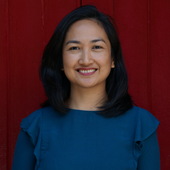
Liberty Pascua de Rivera
Vice Chancellor Research Fellow, Faculty of Education, Southern Cross University
Less ![]()

Libusha Kelly
Associate Professor of Systems and Computational Biology, Microbiology and Immunology, Albert Einstein College of Medicine
Our lab is interested in microbial communities as sensors of ecosystem properties over space and time. We work to define the fundamental rules of how microbiomes detect, process, and respond to internal and external signals from their environments, and how they evolve at the community level and as individuals to changing environments. We work across ecosystems to characterize microbial community resilience, to identify higher-order microbiome markers of environmental health and sickness, and to reveal networks of information flow in microbial communities that respond to and drive environmental changes using cutting-edge computational approaches that are grounded in experimental biology. The broad goal of our work is to understand how to harness the information stored in microbial communities to improve ecosystem health.
Less ![]()

Licia Verde
Profesor ICREA de Cosmologia en el ICCUB de la Universidad de Barcelona, Universitat de Barcelona
Less ![]()

Lieke ten Brummelhuis
Associate Professor of Management and Organisation Studies, Simon Fraser University
My research interests are related to employee well-being including employee recovery, workaholism, work-life balance, and flexible work designs. I am motivated to find an answer to the question of why people work in the way they do, and what work styles improve work outcomes, work-life balance, and well-being. My research has been published in top academic journals such as American Psychologist, Journal of Applied Psychology, Journal of Management, Academy of Management Discoveries, and Journal of Organizational Behavior. My work has been featured in articles published by Harvard Business Review.
Less ![]()

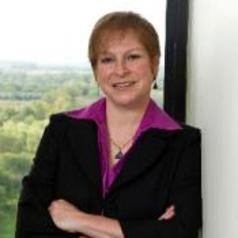
Liette Vasseur
Professor, Biological Sciences, Brock University
Dr. Vasseur is a full professor in the Department of Biological Sciences at Brock University where she is also a member of the Women and Gender Studies program and the Environmental Sustainability Research Centre (note however inactive since on sabbatical July 1st, 2018 until June 30, 2019). Since 2014, she holds the UNESCO Chair on Community Sustainability: From Local to Global at Brock (renewed 2018).
Her research program is highly interdisciplinary and links issues such as community-based ecosystem management, climate change adaptation and resilience and sustainable agriculture. She works in China, where she is a visiting scholar at Fujian Agriculture and Forestry University. Her work in Ecuador focuses on the community sustainability and ecosystem-based adaptation to climate change of rural native communities in the Andean region of the Chimborazo.
Her community-research work with the City of greater Sudbury led her to receive in 2011 the Latornell Pioneers Award from Conservation Ontario. She has produced over hundred publications and more than 200 presentations as a researcher.
Since June 2018, she is the President of the Canadian Commission for UNESCO, where she was previously Chair of the Sectoral Commission on Social, Human and Natural Sciences. She is the vice-chair for North America on the steering committee of the Commission for Ecosystem Management at the International Union for Conservation of Nature and leads the thematic group on Ecosystem Governance. Dr. Vasseur is also the Past-President (President from 2014 to2018) of the Canadian Coalition of Women in Engineering, Science, Trades and Technology.
Less ![]()


Lifang Zhang
Lifang Zhang is currently a PhD student in Art History and a fellow at the Arts of Africa and Global Souths research programme. Her research interests include; contemporary arts of Africa; art and city; art and literature engagements between Africa and China; etc.
Less ![]()
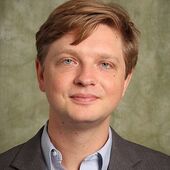
Lightning Jay
Assistant Professor of Teaching, Learning and Educational Leadership, Binghamton University, State University of New York
Less ![]()
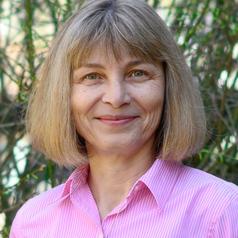
Lila Kari
Professor, Computer Science, University of Waterloo
Lila Kari is Professor in the School of Computer Science at the University of Waterloo, and Adjunct Professor in the Department of Computer Science at the University of Western Ontario, Canada. She received her M.Sc. in 1987 from the University of Bucharest, Romania, and her Ph.D. in 1991 for her thesis "On Insertions and Deletions in Formal Languages", for which she received the Rolf Nevanlinna doctoral thesis award for the best doctoral thesis in mathematics thesis in Finland. Author of more than 250 peer reviewed articles, Professor Kari is a recognized expert in the area of biomolecular computation, that is using biological, chemical and other natural systems to perform computations. In 2015 she received the Rozenberg Tulip Award for the DNA Computer Scientist of the Year, awarded at the 21st International conference on DNA Computing and Molecular Programming, Harvard University, USA, award that recognizes a prominent scientist who has shown continuous contributions, pioneering, original contributions, and who has influenced the development of the field. Her current research focusses on comparative genomics, biodiversity informatics, as well as theoretical aspects of bioinformation and biocomputation.
Less ![]()
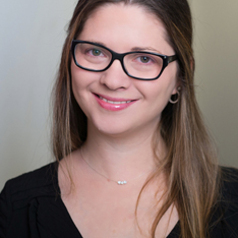
Lila Rabinovich
Social scientist, USC Dornsife College of Letters, Arts and Sciences
Lila Rabinovich is a social scientist at the University of Southern California's Center for Economic and Social Research.
Less ![]()
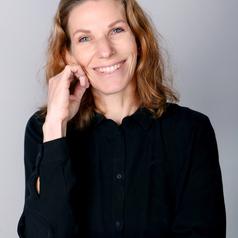
Lilach Marom
Assistant Professor, Education, Simon Fraser University
Lilach Marom is an assistant professor in the Faculty of Education at Simon Fraser University, British Columbia, Canada. In her research Lilach draws on critical theories to highlight issues of equity, anti-racism, and social justice in education. Lilach has worked as an educator in multiple contexts (in Israel, the United States, and Canada) with diverse students and communities.
Less ![]()
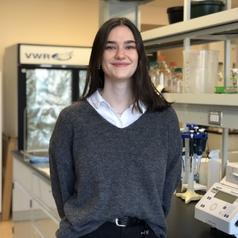
Lili Grieco-St-Pierre
PhD Student, Biochemistry, Carleton University
I am a PhD Student in the Bruin Lab, located at Carleton University. My research centers on exploring the influence of chemotherapeutic agents on pancreatic islet function and, consequently, understanding the connection between chemotherapy and the risk of developing diabetes in cancer survivors.
Less ![]()

Lilia Giugni
Assistant professor, University of Bristol
Dr Lilia Giugni is a lecturer (assistant professor) in Social Innovation & Strategy at the University of Bristol, a feminist activist and writer and a research associate at the University of Cambridge. Her research and activist work lie at at the intersection between gender, social and digital justice, as well as social innovation. She is the CEO and co-founder of GenPol - Gender & Policy Insights, a UK-based feminist think tank, and a Fellow of the Royal Society of Arts. She has recently published a book, 'Threat - Why Digital Capitalism Is Sexist (And How To Resist)' (September Publishing), and regularly contributes editorials and comments to international media on her areas of expertise.
Less ![]()
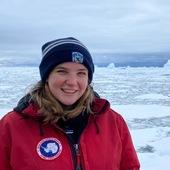
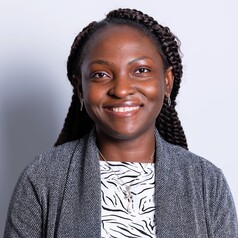
Lilian Otaye-Ebede
Professor in Human Resource Management and Organisational Behaviour, University of Liverpool
Lilian Otaye-Ebede (PhD) is a Professor in Human Resource Management and Organisational Behaviour at the University of Liverpool, United Kingdom, holding a PhD in Management from Aston University. She is the Programme Director for the on-campus MSc in HRM and the Online MSc IHRM Programmes. Her research interests are in the areas of diversity management (race/ethnicity, gender, neurodiversity), strategic Human Resource Management (HRM), work/life interface and employee well-being. She has published academic papers in world leading journals, co-authored book chapters, authored and co-authored a number of practitioner articles, and has extensively presented her research at national and international conferences and workshops.
Lilian is an Associate Member of the Higher Education Academy and an Academic Fellow of the Chartered Institute of Personnel Development (FCIPD). She also currently serves as an Associate Editor of Personnel Review Journal and as an editorial board member on the International Journal of HRM; the Journal of Organizational Effectiveness: People and Performance and the African Journal of Management. Additionally, she serves as a Representative-at-large of the Diversity, Equity and Inclusion division executive committee of the Academy of Management and is on the Board of Directors for the Open Eye Gallery UK, advising on HR & race related matters.
She is the Race Equality Charter (REC) Community Visibility and Staff sub-group Chair for the University of Liverpool. Professor Otaye-Ebede continues to work on many aspects of employee race equality, including previously working with colleagues to run an international seminar series funded by the Economic and Social Research Council (ESRC); one of the outcomes of this is the website - https://workplaceedi.com/, which she and her colleagues continue to run as part of a group that includes members of the WRES team at NHS England and the NHS Race and Health Observatory Team. Her research has been funded by a number of institutions including the Leverhulme/British Academy, Economic and Social Research Council (ESRC), GCRF (LJMU Internal) and the CIPD. Lilian is interested in sharing her research findings with the world of work and conducting impactful and world-changing research.
Prior to joining the University of Liverpool, she worked at LJMU as a lecturer progressing to Reader (Associate Professor), at Lancaster University as a Post-Doctoral Research Associate with the Centre for Performance-Led HR, and at Aston University, Birmingham as a Research Associate on a project sponsored by the British Safety Council with the Aston Centre for Human Resources. She has also worked with the University of Sheffield as a Honorary Senior Research Fellow, and at the University of Manchester. Lilian has also gained experience in the commercial world having worked in industry undertaking various HR practitioner roles joining academia.
Less ![]()
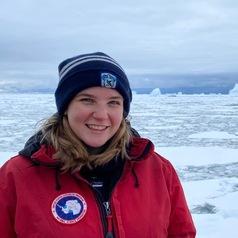
Lilian (Lily) Dove
Ph.D. Candidate in Oceanography, California Institute of Technology
Lily is an oceanographer studying the interactions of physics and biogeochemistry in the Southern Ocean. She uses data from underwater autonomous vehicles and satellites to understand what role the ocean plays in our climate system. Her interests include how mesoscale and submesoscale dynamics, particularly in the Southern Ocean, affect the efficiency with which carbon dioxide can be transferred from the atmosphere to the deep ocean. Previously, at MIT, she worked to understand how aerosol droplets produced by sea spray could act as nucleation sites for ice clouds.
Less ![]()

Liliana Laranjo
Senior Lecturer in Digital Health and Community and Primary Health Care Practice, University of Sydney
Liliana Laranjo (MD MPH PhD) is a Medical Doctor (General Practitioner) with a Master of Public Health from Harvard University, and a PhD in Digital Health. Her current research focuses on primary care, person-centred care, digital health and behaviour change.
EDUCATION HISTORY
(2015) PhD in Medicine (Digital Health), Lisbon Medical School, Lisbon University
(2014) Specialty in Family Medicine / General Practice (postgraduate medical training). Member of the Portuguese College of General Practice.
(2013) Master of Public Health (MPH), Harvard School of Public Health, Harvard University
(2007) Degree in Medicine (MD), Lisbon Medical School, Lisbon University
Less ![]()
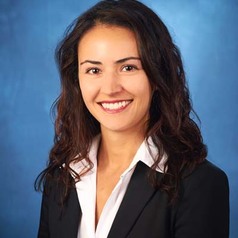
Liliana M Sarces
Associate Professor of Education, Pennsylvania State University
Liliana M Garces is an Associate Professor in the Higher Education Program, Co-Director of the Center for Education and Civil Rights, and a Research Associate in the Center for the Study of Higher Education at The Pennsylvania State University. Before joining Penn State, she taught at the Graduate School of Education and Human Development at the George Washington University and completed a post-doctorate fellowship at the National Poverty Center in the Gerald R Ford School of Public Policy at the University of Michigan. She teaches courses on education policy and politics, higher education law, and race, law, and education.
Dr. Garces’s research, focused on the dynamics of law and education, seeks to inform policies and practices that address inequities in education. Her work employs quantitative, qualitative and legal research methods, and draws from frameworks in law, economics, sociology, and political science, engaging in interdisciplinary research that can more effectively tackle the complex nature of educational inequality, both in K-12 and higher education. She has written on the impact of affirmative action bans on the representation of students of color in graduate and medical schools, institutional responses to court cases and laws addressing race-conscious admissions policies, and the use of social science research in education-related cases.
Less ![]()

Lilis Mulyani
Researcher, Badan Riset dan Inovasi Nasional (BRIN)
Lilis Mulyani is Researcher at the National Research and Innovation Agency (BRIN). She obtained her Philosophical Doctor from the Melbourne Law School in 2021. Her research focuses on land law and agrarian studies, human rights, group rights, and legal methodology. Her Ph.D thesis was written on legal personality of groups and land rights with particular interest on customary communities. Among her publications are Gambling with the State: Land Titles and Personhood Rights Among the Urban Poor in Indonesia (Asian Law Journal, 2015), co-author of Unrelenting Games: Multiple Negotiations and Landscape Transformations in the tropical peatlands of Central Kalimantan, Indonesia with Sanders, Ford, Prasti, Larson, Jagau and Keenan (World Development, Vol 117, May 2019, pp. 196-210), a book on Traditional Customary Communities in Indonesia: Law, Identity, and Recognition (Routledge, 2022), and Assembling Nusantara: Mimicry, Friction, and Resonance in teh Creation in the New Capital Development (Springer Nature, 2023).
Emails: [email protected] or [email protected]
ORCID identifier (0000-0002-1290-378X)
Mobile: +62 812 9119 7699
Less ![]()
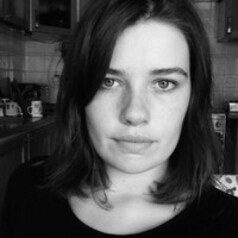
Lillian Hingley
Postdoctoral Researcher in English Literature, University of Oxford
Dr Lillian Hingley is a postdoctoral researcher and stipendiary lecturer in English Literature at the University of Oxford. In addition to teaching undergraduate and graduate courses on anglophone literature from the Romantic period to the present, she is currently preparing her first monograph on the philosopher Theodor Adorno’s engagement with anglophone writers. She has published articles in leading journals such as Studies in American Jewish Literature, Notes & Queries, Telos, and Journal of Modern Literature, as well as reviews in Irish Studies Review, James Joyce Quarterly, The Beckett Circle, and Notes & Queries. Before her current position, she worked as a lecturer at the University of Warwick’s Department of English and Comparative Literary Studies and as an RAI Fellow at the Rothermere American Institute.
After earning her BA and MA in English Literature from the University of Warwick, she completed her DPhil English thesis ‘Theodor Adorno and Anglophone Modernist Literature’ as the Hertford College – Faculty of English DPhil Scholar in Irish Literature. At Oxford, she has held various academic positions, including: convenor of the Oxford English Faculty’s Modern and Contemporary Seminar, PI of the Oxford Critical Theory Network, and RAI Fellow at the Rothermere American Institute. When she’s not in Oxford, she’s probably reading – with a mocha – in Manchester, her beloved home city.
Less ![]()
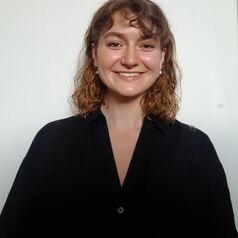

Lily Atkinson
PhD candidate, Gender Studies, University of Adelaide
PhD candidate in gender studies, researching feminist approaches to histories and futures.
Less ![]()
- Market Data





















